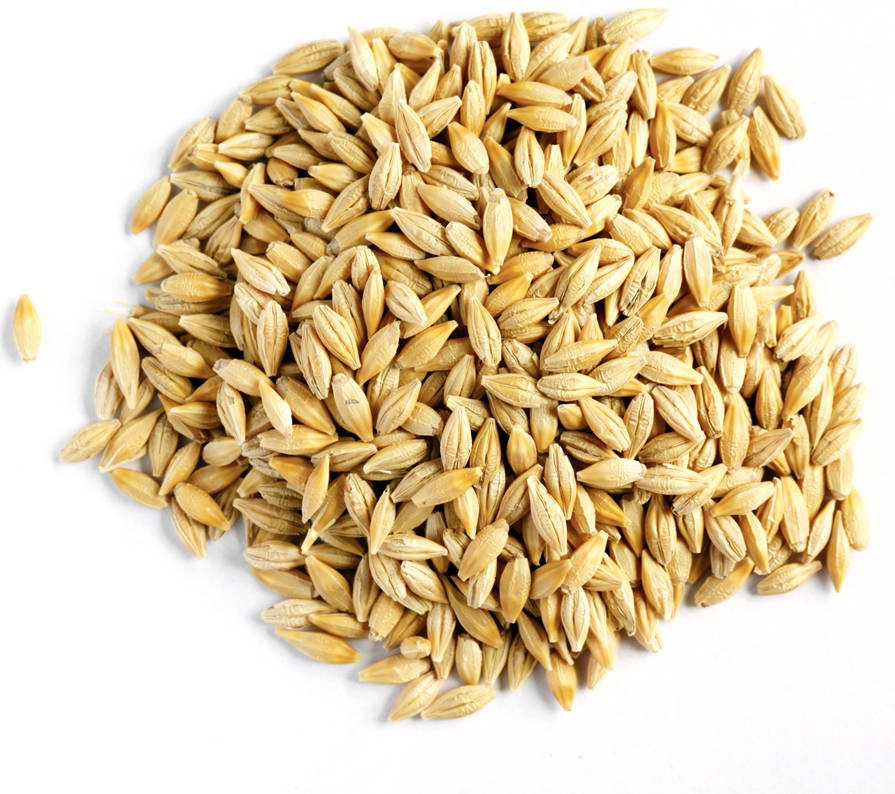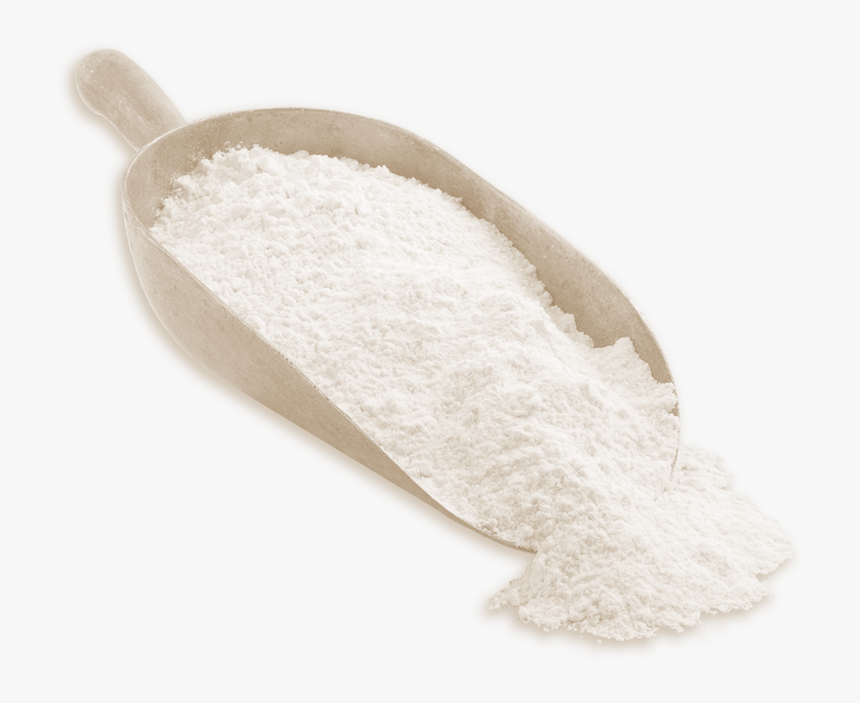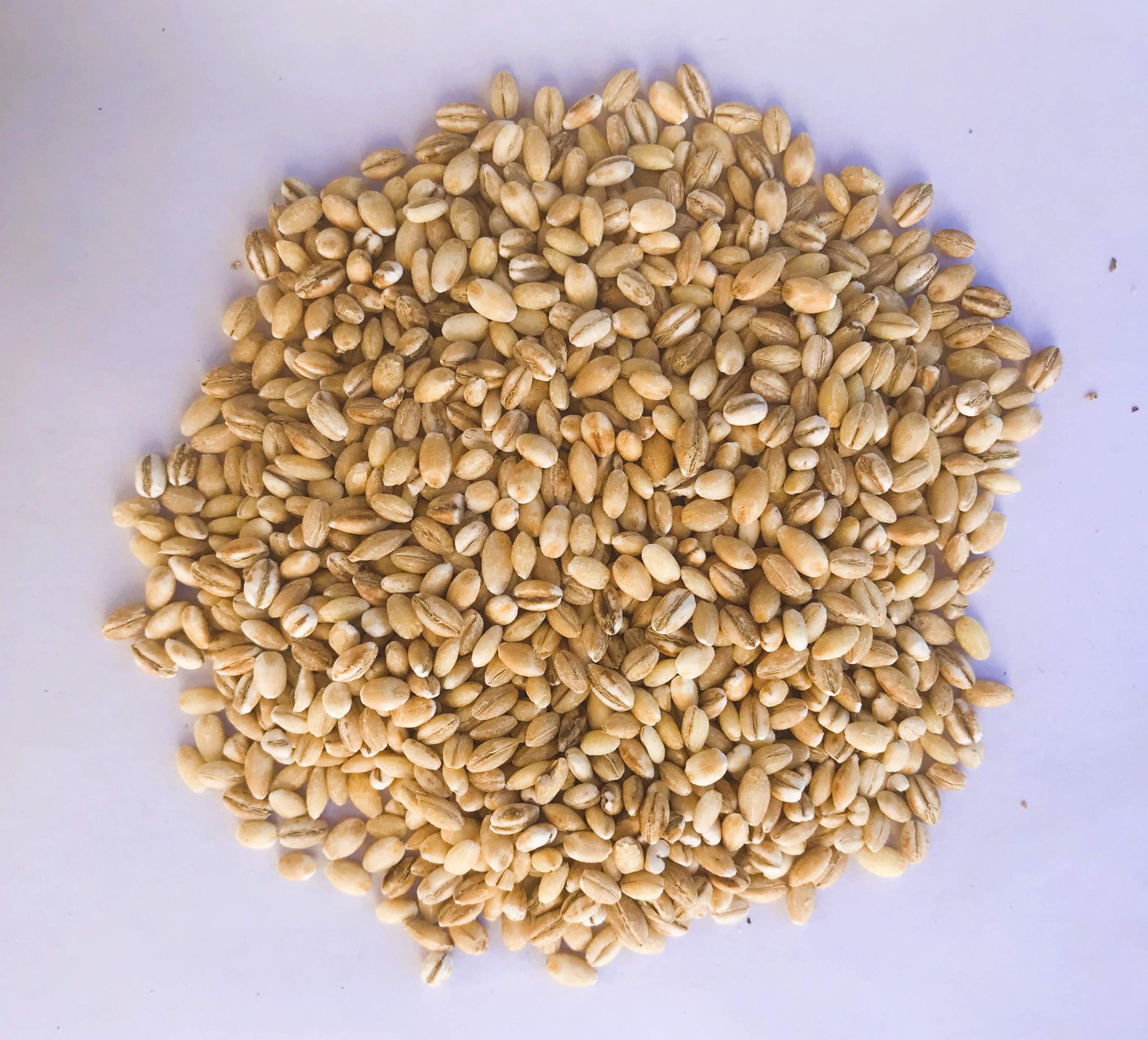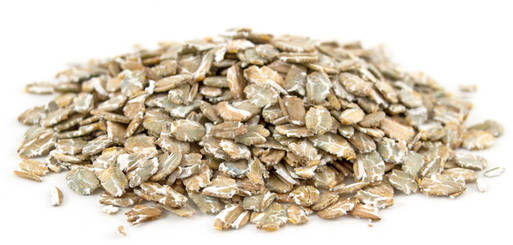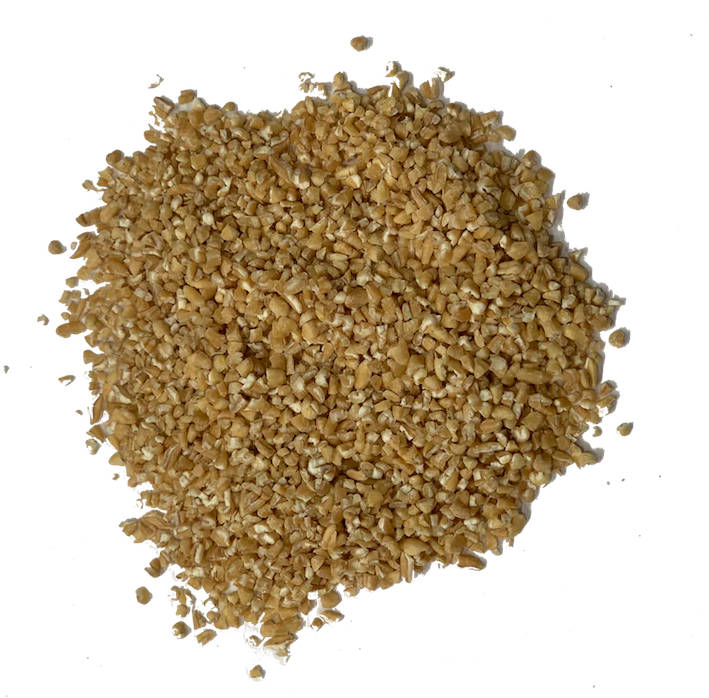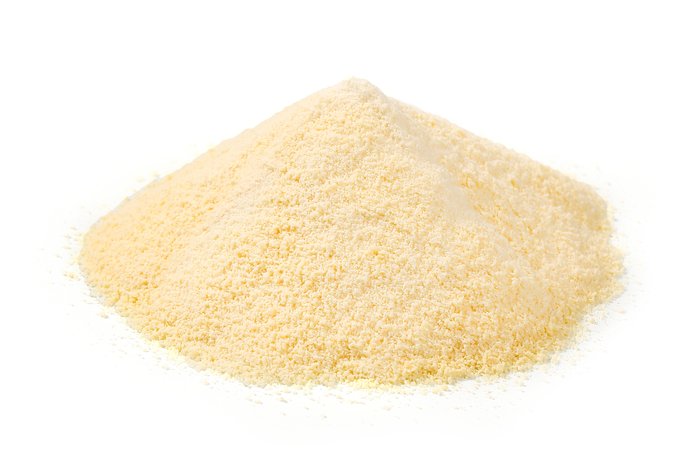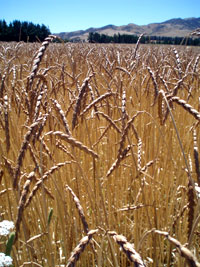Barley
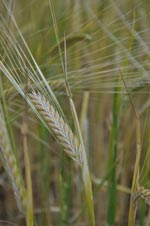
The grain is covered by an outer seed coat that covers the bran layer, a large starchy endosperm, and an oil-containing germ. The hull and bran are removed by a process called pearling. Once pearled it can be further processed to flour, semolina or flakes.
Barley flakes are ideal ingredients for muesli – or even an excellent replacement for oat flakes – they are sweeter with a lower fat content. Try making 'granola' - lightly toast with a few raisins, a drizzle of honey, sunflower or pumpkin seeds and perhaps some nuts.
All Barley products are BioGro certified
Nutritional information for barley
|
Nutrients |
AVG Quantity/100g |
| Energy | 330 cal |
| Protein | 9.6 g |
|
Fat total |
2.1 g |
|
Carbohydrates |
60.3 g 0.8 g |
|
dietary fibre |
0.8 g |
Whole Barley
Whole barley grains are the unprocessed form of barley, with the outer husk removed but retaining the bran, germ, and endosperm. These grains have a chewy texture and a mild, nutty flavor. They are highly nutritious, rich in fiber, vitamins (particularly B-vitamins), minerals (such as magnesium and iron), and antioxidants.
Barley can also be sprouted to create barley grass for juices and smoothies. Additionally, whole barley is often used as a side dish or mixed into casseroles, and it serves as a key ingredient in certain breakfast cereals. As a whole grain, it is an excellent choice for those looking to incorporate more fibre and nutrients into their diet.
Barley Flour
Barley flour has a mild, nutty flavour and a slightly coarse texture, making it ideal for adding depth and nutrition to baked goods like breads, muffins, and pancakes.
It is lower in gluten than wheat flour, providing a tender crumb and a chewy consistency. Rich in dietary fibre, vitamins, and minerals, organic stone-ground barley flour is a popular choice for health-conscious bakers seeking a natural, minimally processed ingredient.
Pearl Barley
Versatile and nutritious, pearl barley is commonly used in soups, stews, and casseroles, where it absorbs flavours and adds heartiness. It can also be used as a base for salads, risottos, or as a substitute for rice in various dishes. Although it is less fibrous than hulled barley due to the removal of the bran, pearl barley is still a good source of fibre, vitamins, and minerals, making it a healthy addition to meals.
Barley Flakes
Barley flakes are made by steaming and flattening whole barley grains, similar to how rolled oats are processed. The result is a versatile, nutritious ingredient with a mild, slightly nutty flavour and a chewy texture. Barley flakes are rich in fibre, particularly soluble fibre, which can help with digestion and provide a steady release of energy. They are also a good source of vitamins, minerals, and antioxidants.
Barley flakes can be used in a variety of ways: they make a hearty addition to breakfast cereals, granola, or porridge when cooked with milk or water. They can also be used in baking, added to muffins, cookies, and breads to increase fibre content and texture. Additionally, barley flakes can be sprinkled on top of salads or incorporated into soups and stews for extra bulk and nutrition.
Flakes need to breath, please open bags directly after you receive them.Kibbled Barley
Kibbled barley is commonly used in soups, stews, and casseroles, as it adds a hearty texture and helps thicken dishes. It can also be used as a base for salads, grain bowls, or pilafs, offering a nutritious alternative to rice or quinoa. Rich in fibre, protein, and essential minerals, kibbled barley is a versatile ingredient that supports digestive health and can be a great addition to a variety of savoury dishes.
Buy Our Grain Products
We grow, harvest and process several varieties, all of which are available for purchase from this website.
No products produced by Milmore Downs are fortified with folic acid. (From mid-August 2023, NON-ORGANIC wheat flour suitable for bread making, produced or sold in New Zealand, must be fortified with folic acid.)
